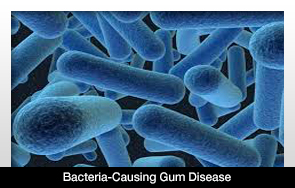 |
Moderate gum disease in an animal model exposed to an AIDS-like condition encountered more viral variants that cause infection and more severe inflammation, according to a new study.
Texas Biomed scientists in San Antonio discovered these features may have a worse impact when considering the long-term effects.
The basic premise of the study is that even the mildest of inflammation in the mouth needs to be treated because it may eventually result in disastrous consequences. Roughly half of the world’s population has some level of gum disease.
After an animal was infected with simian AIDS, the animals’ symptoms are compounded further with the presence of gingivitis.
The study appears in the February issue of the Journal of Virology.
This research was precipitated by the fact that epidemiological evidence suggested infection and inflammation of the genital mucosa raises the chances of becoming infected with HIV via sexual contact.
To compile the data, the group of scientists caused a group of monkeys to develop gum inflammation and compared data with a group of monkeys that did not have gum inflammation. Both groups were exposed to SIV, a monkey virus similar to AIDS, and there was no difference with regard to rate of infection. The animals with gum disease, however, had more viral variants that resulted in infection and displayed higher systemic inflammation after being infected.










